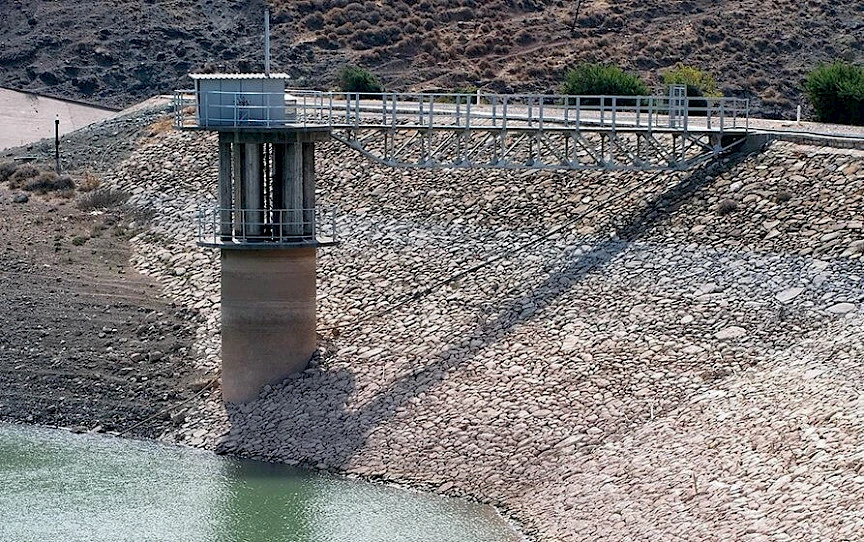Major Water Leak at Mavrokolymbos Dam in Cyprus
A significant water leak has been reported at the Mavrokolymbos Reservoir in Paphos, Cyprus. Authorities have described the situation as "catastrophic," with the head of the district administration labeling it a disaster. According to officials, the dam is losing about 20,000 tons of water every hour.

Before the leak began, the dam was more than 60% full. Akamas Mayor Marinos Lambrou has stated that resolving the situation will be difficult in the short term, and it is likely that "all the water in the dam will be lost."
Identifying the exact location of the leak is proving to be challenging. It seems that there is damage to the lower part of the dam, possibly in the outlet tunnel or aeration pipe. The water is flowing downstream and reaches the sea approximately 1.5 to 2 kilometers away.
A staff member from the Water Department (WDD) noticed the leak at around 4:00 PM on the previous day and immediately reported it to the department. Dam personnel remained at the site overnight to monitor the situation and prevent any property damage or harm to passersby.
To evaluate the situation, Minister of Agriculture Maria Panayiotou and Director of the Ministry of Agriculture Andreas Gregoriou have already visited the site. Engineers are working to determine possible solutions to stop the leak.
On Monday, the water flow was significant, but it was "not fast enough to cause major concern." Nevertheless, roads leading to the area were immediately closed.
The Mavrokolymbos Reservoir has a capacity of 2.18 million cubic meters, sourced from the river of the same name. The dam was built in 1966 to support banana plantations in the Kissonerga-Peyia area.
The water from the dam provides irrigation for all local permanent and seasonal crops. The leak is especially concerning during the dry season, following the destruction of the nearby desalination plant in December.
As previously reported, Cyprus' dams are at critical capacity levels as of January 2025. Despite January typically being the wettest month of the year, this month has been unusually dry.


